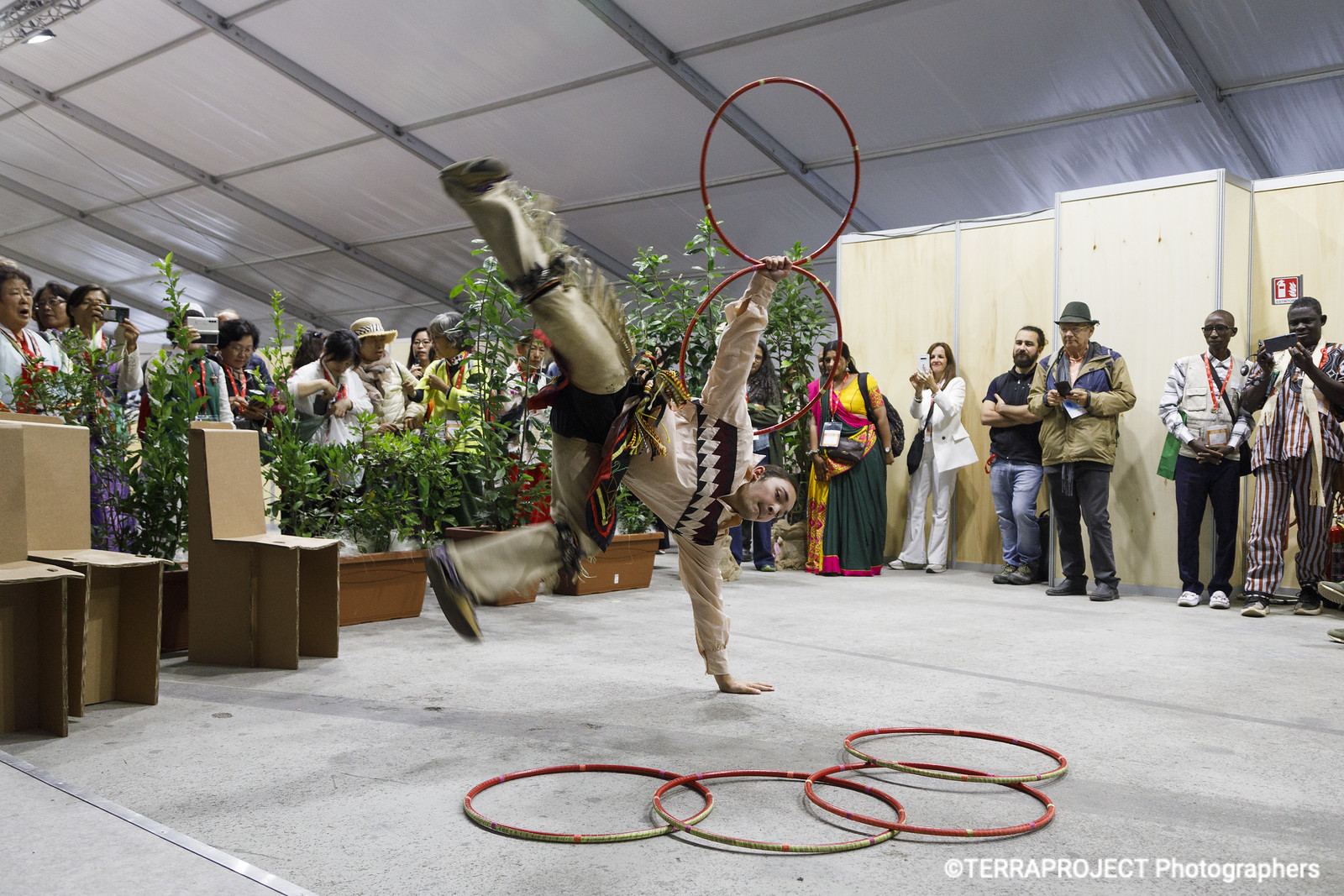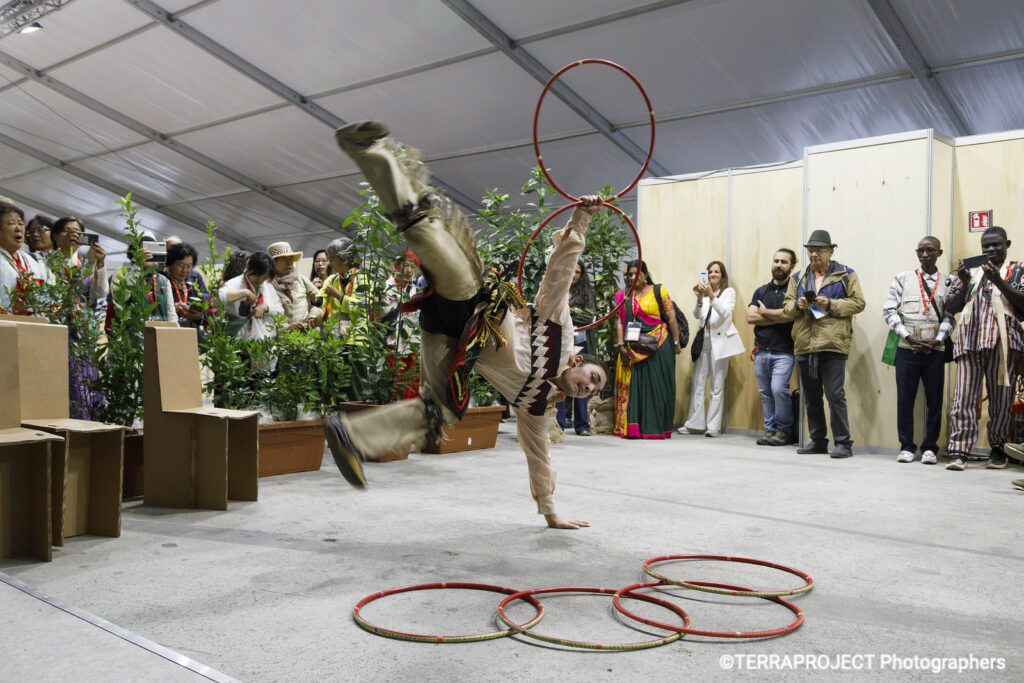29 Sep 2024
Moderated by Bilal Sarwari, Interim Executive Director of Slow Food USA, the conference began with a powerful hoop dance and seed chanting ceremony performed by Mitchell Gray and his mother Lorraine, Indigenous Americans from the Iroquois tribe. This opening set the tone for a gathering deeply rooted in tradition, resilience, and collective action.

Carlo Petrini, founder of Slow Food, delivered a keynote speech that encapsulated the spirit of the event. “Each of these Indigenous communities here with us at Terra Madre has the same dignity as entire countries,” Petrini emphasized, drawing attention to the global significance of Indigenous food traditions. He urged the American delegates to recognize the importance of their political choices, particularly with the upcoming elections, noting that the world is watching closely. Petrini shared a bold vision for the future: Terra Madre making its way to North America. “The efforts of activists, farmers, and innovators in the U.S. have set an example for the rest of the world when it comes to transforming the food system,” he said, highlighting the growth of farmers’ markets, community-supported agriculture (CSA), and urban gardens.
Petrini’s closing remarks were a rallying cry for Slow Food to evolve into a global political network. “It’s not just about challenging the criminal food system dominated by multinationals,” he said, “but about driving change from the local government level up.”
Slow Food International President Edie Mukiibi built on Petrini’s vision, remarking on the symbolism of the opening dance. “Change doesn’t happen alone,” he said. “It happens together.” Mukiibi expressed hope that Terra Madre could soon be held in the U.S., urging participants to think beyond territorial boundaries to make this dream a reality. He also reminded the audience of North America’s pivotal role in the global food system, particularly as the birthplace of industrial agriculture. “Real change comes from welcoming migrants and fostering support systems,” he said. “Without migration, the rich diversity of food cultures we cherish today would not exist.”
The conference also featured delegates from Slow Food Canada, who spotlighted the advocacy work of the Slow Fish Network in collaboration with First Nations communities. Representatives from the Food Planet Prize, the world’s largest environmental award, shared insights on the program and its past winners.
The gathering concluded with reflections from Chef Patrick Mulvanney and Bilal Sarwari, who underscored the vital role farmers, activists, and hospitality workers play in the fight for food justice. As Terra Madre looks to the future, the North American delegates left with a renewed sense of purpose, ready to push for a more just, sustainable food system—one that embraces the values of community, equity, and respect for the Earth.
Source link : http://www.bing.com/news/apiclick.aspx?ref=FexRss&aid=&tid=66f978f19b584d1f96806c3331ec7371&url=https%3A%2F%2Fwww.slowfood.com%2Fblog-and-news%2Freflecting-on-20-years-of-terra-madre-a-north-american-perspective%2F&c=16037757613898144866&mkt=en-us
Author :
Publish date : 2024-09-28 21:20:00
Copyright for syndicated content belongs to the linked Source.
